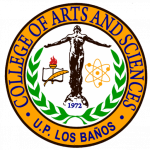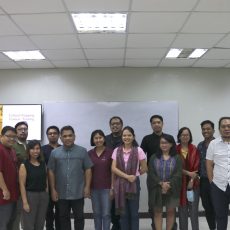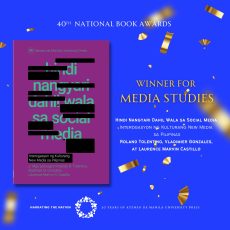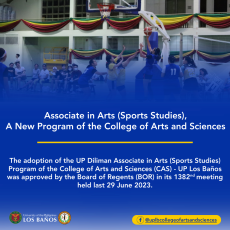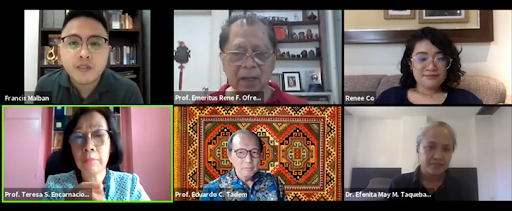
The University of the Philippines (UP) marked the 49th year since Martial Law was declared by Pres. Ferdinand Marcos with five days of webinars on the proclamation’s long-term effects.
This year’s Days of Remembrance were themed “Dambana ng Gunita: Mga Batayang Katotohanan at Aral ng Batas Militar.” The webinars were primarily streamed by TVUP in Youtube, and were also shared in Facebook. It ran from September 20 to 24, 2021. In 2018, UP President Danilo L. Concepcion had signed Proclamation No. 1, setting September 21 of every year as UP Day of Remembrance, during which events were to be held to “commemorate UP’s contribution in the nation’s struggle against dictatorship and tyranny.”
A sub-theme also marked each day of the webinars. Day One (September 20, 2021) revolved around “Marcos Mythmaking and Deception.” Speakers for the event were Dr. Ramon Guillermo (UP Diliman-Center for International Studies), Dr. Roderick Javar (UP Los Baños-Department of Social Sciences), Dr. Ricardo Jose (UP Diliman-Department of History), Dr. Carlos Tatel (UP Diliman-Department of Anthropology), Mr. Miguel Paolo Reyes (UP Diliman Third World Studies Center) and Dr. Gerard Lico (UP Diliman College of Architecture). The speakers dissected the questionable claims about the ostensible achievements of Ferdinand Marcos prior to and during his presidency.
Day Two (September 21) revolved around the theme “Hindi Mapayapa sa Panahon ng Batas Militar.” Speakers for this day were historian Ferdinand Llanes, political science faculty and former chief peace negotiator Miriam Coronel-Ferrer, Islamic Studies professor Julkipli Wadi, Mr. Francisco Lara, and Social Work and Community Development professor Emmanuel Luna. They discussed the various forms of repression and violence that affected Filipinos during Martial Law: demolitions and sonas / “arbitrary arrests of suspicious-looking persons” in urban poor areas, restrictions to the right to strike of workers, and effects to communities of conflicts in Mindanao and other parts of the country.
Day Three (September 22) focused on human rights violations that were committed during the period. In his keynote address, Prof. Roland Simbulan, a former political prisoner, honored the individuals who had dared to resist Martial Law. Rebutting denials of apologists, UP Cebu Sociology prof. Phoebe Zoe Sanchez enumerated the politically-related massacres that occurred during Marcos’ presidency, before and during Martial Law. De La Salle University-Taft faculty Prof. Michael Charleston Chua discussed the various kinds of torture committed on suspected enemies of the government. The dehumanization of these individuals was the aim of these acts, said Chua. Writer Bonifacio Ilagan shared about his ordeal as a prisoner during the Martial Law period. He also narrated the circumstances of the “Southern Tagalog 10,” (one of which was his sister), some of whom are still considered as desaparecidos and still could not be found until now. Finally, anthropologist Bro. Carlito Gaspar, CSsR recounted his experiences in documenting human rights abuses during Martial Law in southern Mindanao and his three instances of being arrested during the period.
Day Four (September 23) had presenters dispelling myths about a so-called Golden Age in Philippine economy during that period. Dr. Teresa Encarnacion-Tadem discussed the ascent of Pres. Marcos’ “cronies’’ into the business scene during Martial Law. She also mentioned the dynamics between these “cronies’’ and Pres. Marcos’ economic officials (also called technocrats), especially in the last five years of the regime. Meanwhile, Dr. Eduardo Tadem illustrated the displacement of small farmers by agribusiness enterprises. He then underscored the influence of the World Bank in the agricultural policies of Pres. Marcos’ administration in the early 1980s. Anthropology professor Efenita Taqueban cited the resistance to the Chico Dam project, led by Butbut community leader Macli-ing Dulag, as an example of reactions of indigenous peoples in the Philippines against economic development projects that could adversely affect them. Professor Emeritus Rene Ofreneo traced again the roots of our current overseas labor migration system to specific circumstances that occurred during the Martial Law period.
Day 5 (September 24) was about “Nagnakaw sa Kaban ng Bayan,” focusing on the looting of the public coffers by the President, his family, and close associates as well as the resilience of political dynasties even after the EDSA Revolution of 1986. The speakers for this day were Dr. Belinda Aquino, Atty. Ruben Carranza, and Dr. Ronald U. Mendoza.
— RJ Asuncion
